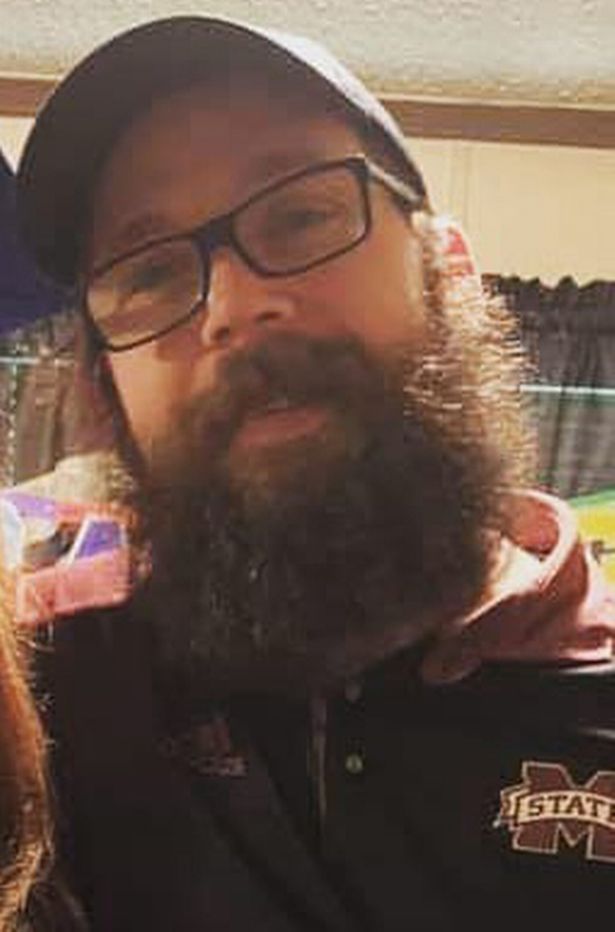Who was Ronnie McNutt? This name has become synonymous with tragedy and a critical conversation about mental health, PTSD, and the role of social media in our lives. Ronnie McNutt's story is one that resonates deeply with many, as it sheds light on the struggles faced by veterans and individuals dealing with unseen wounds. His life and untimely death have sparked discussions worldwide, urging society to take a closer look at how we support those who need help.
Ronnie McNutt's legacy extends beyond his tragic passing. As an Iraq War veteran, a dedicated Toyota plant employee, and a beloved member of his community, he left behind a rich tapestry of experiences and relationships. His journey from serving his country to grappling with the challenges of post-war life highlights the importance of understanding and addressing the invisible scars carried by so many. Through uncovering his story, we gain insight into the broader issues affecting countless others like him.
The Impact of Social Media on Mental Health
Social media platforms have revolutionized the way we communicate, but they also come with significant risks, especially for vulnerable individuals. In Ronnie McNutt's case, the live broadcast of his suicide on Facebook brought attention to the darker side of these technologies. While intended as tools for connection, such platforms can sometimes amplify feelings of isolation and despair if not properly managed or monitored.
Josh Steen, a close friend of Ronnie's, witnessed the heart-wrenching event firsthand. He has since become an advocate for greater accountability among tech companies regarding content moderation and user safety. By sharing his experience, Josh hopes to prevent similar tragedies in the future and ensure that social media serves as a force for good rather than harm.
This incident underscores the urgent need for better mental health resources and support systems within digital spaces. It calls upon both users and corporations to prioritize empathy and responsibility when interacting online. Only through collective effort can we create safer environments where people feel heard and valued.
A Veteran's Struggle with PTSD
Ronnie McNutt's battle with PTSD reflects the harsh realities faced by countless service members returning home after combat duty. The psychological toll of war often lingers long after the physical dangers have passed, manifesting in various forms such as anxiety, depression, and intrusive thoughts. For Ronnie, these struggles ultimately proved insurmountable without adequate intervention.
Friends and family described him as caring and loyal, yet beneath this outward persona lay deep-seated pain stemming from his military service. Despite seeking refuge in employment at Toyota and engaging with others through streaming activities, Ronnie could not escape the haunting memories that plagued him daily. His decision to end his life serves as a stark reminder of the silent battles waged by veterans everywhere.
It is crucial to recognize the signs of PTSD early and provide comprehensive care tailored to each individual's needs. By fostering awareness and breaking down stigmas surrounding mental illness, we honor Ronnie's memory while striving toward a world where no one faces these challenges alone.
Musical Tributes and Cultural Reflections
In the wake of Ronnie McNutt's death, artists across different genres have paid homage to his life through music. Songs like Ronnie Mcnutt by PopKill and Let's End It Here by OldPets capture the sorrow and reflection inspired by his story. These compositions serve not only as memorials but also as catalysts for dialogue around important societal issues.
Music possesses unique power to evoke emotions and bridge divides, making it an effective medium for processing grief and promoting healing. Playlists dedicated to Ronnie's memory allow listeners to connect with their own experiences while honoring his legacy. Such creative expressions remind us of the universal nature of human suffering and resilience.
As we continue exploring ways to address mental health crises, let us embrace art as a vital component of recovery and advocacy. Through collaboration between musicians, advocates, and communities, we can build pathways toward hope and transformation, ensuring that stories like Ronnie's inspire action instead of despair.

